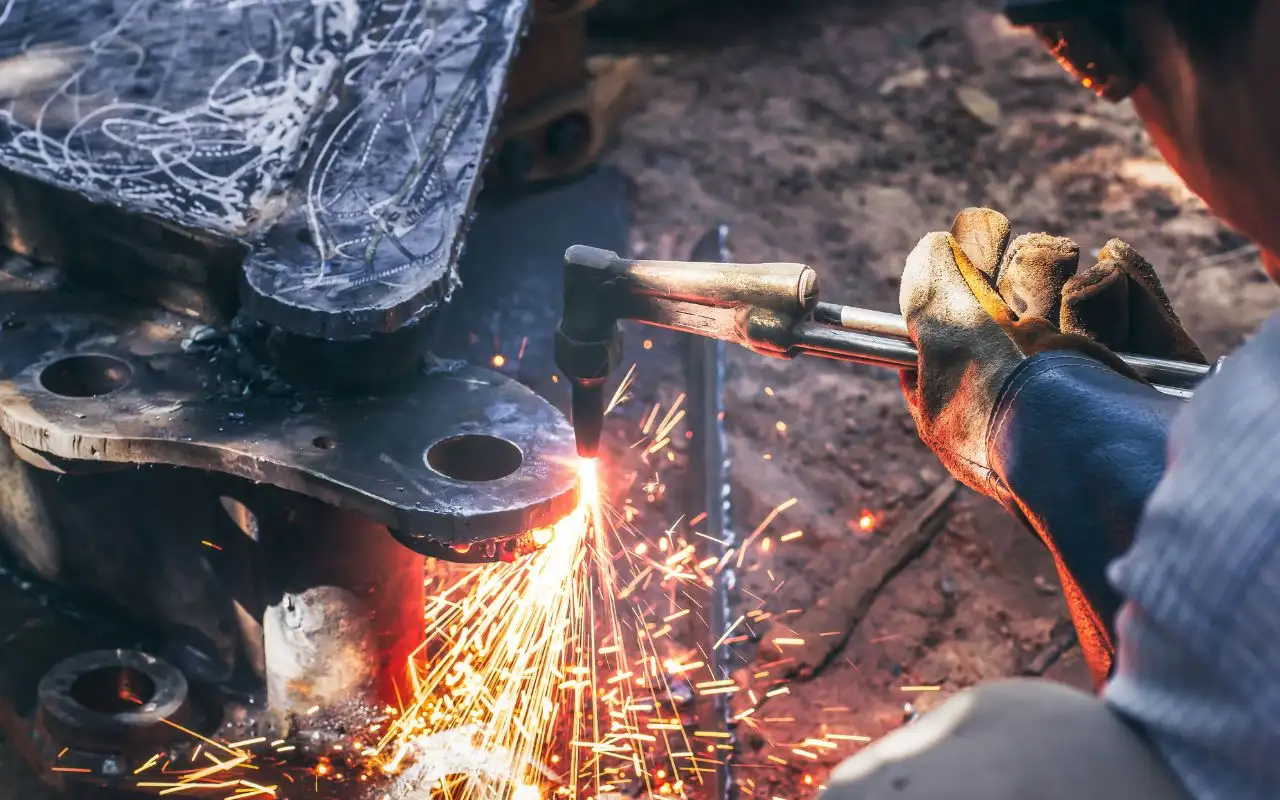Boilermakers in South Africa earn an average hourly pay of R99.61 in 2024, ranging from R52 to R162.
The total pay, including bonuses, profit sharing, and commission, varies between R103,000 and R373,000 based on 615 salary profiles.
Pay levels also differ with experience: entry-level Boilermakers with less than 1 year earn around R76, early-career individuals with 1-4 years earn R85, mid-career professionals with 5-9 years receive R98 and experienced Boilermakers with 10-19 years earn an average of R112.
Late-career Boilermakers, with 20 or more years of experience, receive an average total compensation of R117.
These figures provide insight into the salary structure for Boilermakers in South Africa, highlighting the impact of experience on earnings.
Factors that Influence A Boilermaker Salary in South Africa
1. Experience and Qualifications:
Boilermakers with extensive experience and higher qualifications (e.g., trade certifications, and diplomas) typically command higher salaries.
Specialization in specific areas like pressure welding or nuclear power plants can further elevate earning potential.
2. Location:
Salaries tend to be higher in major industrial hubs like Johannesburg, Durban, and Cape Town due to increased demand and competition for skilled workers.
Remote or rural locations might offer lower base wages but are potentially offset by benefits like subsidized housing.
3. Industry:
Boilermakers in specialized industries like petrochemicals, oil & gas, or power generation often earn more due to the complexity and risk involved.
Construction, shipbuilding, or manufacturing might offer lower wages but with better job security and stability.
4. Employer:
Large multinational corporations or government entities generally pay higher salaries compared to smaller, private firms.
Unionized workplaces often have negotiated wage scales and benefits packages that influence overall compensation.
5. Company Performance:
Companies experiencing strong financial performance are more likely to offer higher wages and bonuses to attract and retain talent.
Struggling companies might have limited budgets and may prioritize cost-cutting measures, impacting salaries.
6. Overtime and Shift Work:
Boilermakers who regularly work overtime or night shifts typically receive premium pay or shift differentials, boosting their overall earnings.
However, these extended hours can also lead to fatigue and reduced work-life balance.
7. Benefits and Perks:
Some employers offer comprehensive benefits packages that include medical aid, pension contributions, and paid leave, which can indirectly add to the total compensation.
Additional perks like housing allowances, vehicle benefits, or training opportunities can further enhance the overall value of the job.
8. Bargaining Power and Negotiation Skills:
Skilled boilermakers with strong negotiation skills can advocate for higher wages and better working conditions during the hiring process or performance reviews.
Unions can also play a role in collective bargaining agreements that set minimum wage standards and benefits for their members.
9. Supply and Demand:
When the demand for qualified boilermakers exceeds the available workforce, salaries tend to rise as employers compete to attract and retain talent.
Conversely, an oversupply of boilermakers can put downward pressure on wages due to increased competition for available positions.
10. Individual Performance:
Boilermakers who consistently demonstrate high performance, exceed expectations, and take on additional responsibilities are more likely to be rewarded with promotions, raises, or bonuses.
Maintaining a positive attitude, strong work ethic, and a commitment to safety can also contribute to career advancement and higher earning potential.
Education and Qualifications of A Boilermaker in South Africa
Specific educational qualifications and training are required to become a Boilermaker in South Africa.
These qualifications ensure that individuals have the necessary skills and knowledge to perform their duties effectively. Here’s an overview:
Matriculation (Grade 12) or Equivalent
Having a Matric certificate or equivalent qualification is often the basic educational requirement. Subjects like Mathematics and Physical Science are beneficial as they provide a foundation for the principles needed in boilermaking.
NATED Courses (N1-N3)
Many boilermakers start with National Accredited Technical Education Diploma (NATED) courses, which include N1, N2, and N3 certificates in boilermaking. These courses cover basic theory and practical skills in metalwork, mathematics, engineering science, and technical drawing.
N4-N6 Certificates
After completing N1-N3, some may pursue N4-N6 certificates for advanced knowledge and skills in the field. These qualifications provide deeper insights into engineering theory and boilermaking techniques.
Trade Test Certification
To be recognized as a qualified boilermaker, passing a trade test at an accredited trade test centre is crucial. This certification is recognized by the South African Qualifications Authority (SAQA) and is a key requirement for professional practice.
Apprenticeship
A practical apprenticeship under a qualified boilermaker is a critical component of training. This period allows for hands-on experience and learning under real-world conditions. Apprenticeships typically last about 3-4 years.
Further Training and Specializations
Boilermakers may also pursue further training in specialized areas such as welding, metal fabrication, or pressure vessel design. Continuous professional development courses are available to upgrade their skills and knowledge.
Safety and Health Training
Due to the hazardous nature of the work, boilermakers need training in occupational health and safety, including handling tools and equipment, safety protocols, and emergency procedures.
Soft Skills Development
Apart from technical skills, boilermakers should have good problem-solving abilities, attention to detail, physical stamina, and the ability to work as part of a team.
Becoming a boilermaker in South Africa involves completing specific educational courses, obtaining practical apprenticeship experience, passing a trade test, and ongoing learning and development. This combination of theoretical and practical training ensures that boilermakers are well-equipped to handle the demands of their profession.

